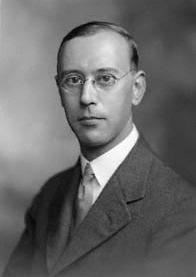
Plucknett on the Renaissance state’s “war against the idea of law” (1956)
Found in: A Concise History of the Common Law
The English legal historian Theodore Plucknett (1897-1965) argues that a new concept of law emerged during the Renaissance, replacing the medieval notion of a king both enforcing and subject to divine or natural law, with that of “the modern State based upon force and independent of morality”:
Law
When we come to Machiavelli we reach the spirit of the Renaissance, and begin to find law itself questioned, for his distinction between public and private morality is essentially the same heresy as to divide the substance of the Godhead; a double standard introduces a sort of polytheism utterly repugnant to mediaeval thought. And true enough, there soon came the State, as a sort of anti-Christ, to wage war with the idea of law. The issue of this conflict is perhaps still uncertain, but mediaeval thought is to-day fighting hard for the cause of law against the amoral, irresponsible State….It was Machiavelli himself who gave us the word “state” and filled it with the content which we now associate with it. Instead of the mediaeval dominion based upon divine right and subject to law, we have the modern State based upon force and independent of morality.